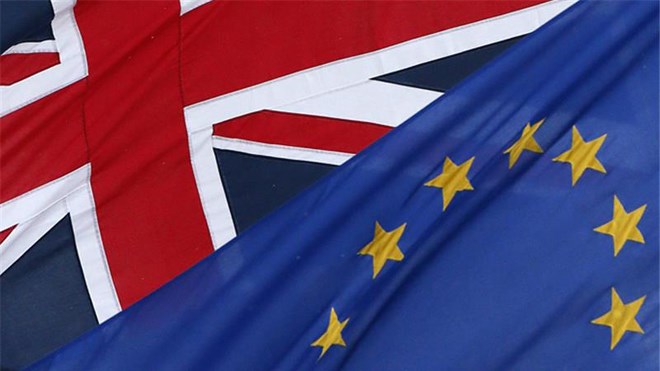As the world digests news that Great Britain has narrowly voted to leave the European Union, some expats living in Sudbury say they are worried about what's happening to their native land.
Laurentian University Prof. David Pearson said Friday he has yet to talk with his brother in Newcastle, but is dismayed about could happen next.
"I was shocked and I was disappointed,” Pearson said. “I think a split between Scotland and England, and a split within England ... is really, really bad."
He said arguments in favour of leaving the EU mirrored those made decades ago when Brits were deciding whether to become a founding member.
"It was about surrendering our sovereignty and being master in our own house and not wanting to have to abide by decisions made by foreigners," Pearson said. "It was inward-looking and short-sighted. But in the end, the decision was to join the European Union and that was because the Second World War was less than 20 years back.
And people were persuaded that Europe needed to politically be less likely to fight amongst itself than in the past.
"That was a very strong argument at the time. But war is not as immediate, unless you happen to live in the Ukraine. So I think the arguments just didn't bite like they did in the past."
Sudbury artist Rosie Maddock, who lived in Oxfordshire before moving to Canada, said she and her husband are also shocked at the result.
“We haven't yet had family contact, but the utter disbelief, gloom, anger and disappointment amongst our friends on social media is clear,” Maddock said in an email.
“The nation is split in two over this issue, with strong feelings on either side, and we can only hope for the emergence of wise and clear leadership in the aftermath.”
Maddock said she suspects the outcome is the result of manipulation by far-right politicians who linked tough economic conditions with EU membership.
“It seems that those who have been most adversely affected by the austerity measures imposed by the Conservative government have been encouraged to view their situation as a consequence of EU membership,” she said.
“History relates that hardship always creates conditions for extremist views. Coupled with disinformation about the EU I think this has swayed the vote
The results – 52 per cent voted to leave, 48 to stay – has left the country divided, Maddock said, and could lead to the breakup of nation.
“This may well mark the dissolution of the UK, as Scotland and Northern Ireland seek independent EU membership. But despite its collective apparent loss of reason at the moment, the UK also has many capable leaders, and we can only hope they emerge to wisely steer the country through the myriad challenges and losses ahead.
Pearson said he sees the Brexit vote as part of a trend in Europe toward more extreme political viewpoints, pointing to the recent vote in Austria, where a far-right candidate was almost elected president.
“The anti-immigrant, nationalist strain is still present in some European countries,” he said. "And there are some common elements between Trump and Europe. I think it's fear of people who are different. Not only different in religion, but different in the way they dress and there a threat to the culture and the history of the nation. I think that applies whether it's Austria or it's England."
But in an increasingly globalized world, finding ways to grow closer is key to solving big problems, he said, rather than "pretending that the solution to the issues is to turn your back on your neighbours.
"I just think that the future of continents and the future of the planet relies on being able to work together on issues,” Pearson said. “Trump's wall between the States and Mexico is, in some ways, driven by the same kinds of fears. It's just such a naive, simple-minded way of solving a problem.
"It's short-sighted. Whether it's trade, or the environment or whether it's immigration, it seems to me that the future of countries depends on being able to work together."
